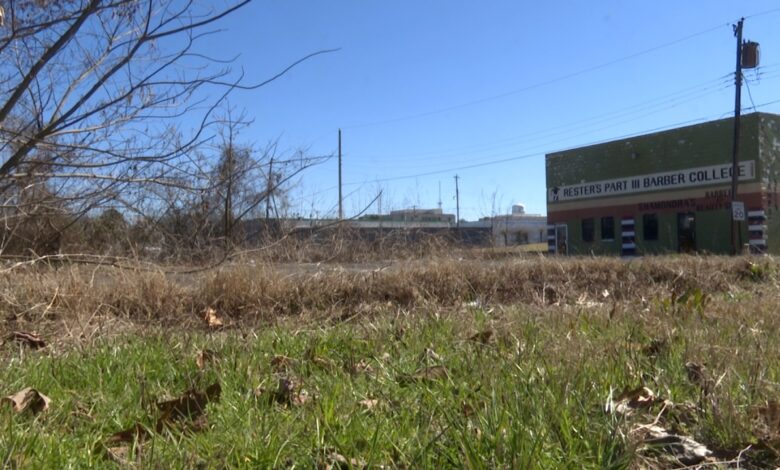El Dorado man reflects on the history of black-owned businesses in the St. Louis Addition | KTVE

EL DORADO, Ark. (KTVE/KARD) — El Dorado is rich with black history. It might not all be in the history books but one man is making sure it’s not forgotten.
Liberty Street to 5th Street and from Union Avenue to Columbia Avenue was once a thriving community for African Americans during the segregation era.
It was filled with black owned hotels, barbershops, clubs restaurants, doctors offices, grocery stores, movie theaters and countless other businesses. That particular square in town was affectionately known to many as the “St. Louis addition”.
When you drive through the neighborhood today, not much is standing from that time period except the brick building which now occupies a barbershop which was formerly known as the Plaza.
“We owned businesses not only on Liberty Street but all up and down Northwest Avenue. Liberty Street happened to be the area where a lot of things flourished,” Ralph Smith said.
“It flourished. People were all up and down both sides of the streets and they were dressed. People put on their best to go down there.”
Snow’s Place, a prominent restaurant, and Dillon’s Hotel were two of the businesses that sat near the corner of Liberty Street and Cordell Avenue. The hotel was a two-story brick building which featured a private club downstairs.
The entertainment scene was one to be remembered back in the day. It brought out the most popular names in the industry on a regular basis.
“BB King. Little Milton. Ike and Tina Turner. Bobby Bland. It was so much going on on Liberty Street, you would think when everyone came to town everybody would flock over there. They filled the house but it was so much going on also that it wasn’t the only thing going on on Liberty Street,” Smith said.
Because the area was thriving so well and blacks were spending their money in black owned establishments, the community reaped the benefits.
“We had a sense of ownership and a sense of independence. When we did something we knew we had to do it. I think about Aron McGhee grocery store on Ouachita Street,” Smith said.
“His son Shelton, who went to college in Pine Bluff and became the choir director, opened the door for any Booker T. Washington High School student to get a scholarship. He was able to do that because people in the community went to the store to shop.”
To see what the area has become now has been heartbreaking for Smith who vividly recalls great memories he had in the St. Louis addition.


He says he remembers how it used to be and can’t imagine the next generations having to grow up with no visual image of how much African Americans flourished despite the hardships.
“Some of them never heard of what happened then. So there’s your history gone. That disturbs me. I remember how it was and I also know that in this city and other cities across the country, they don’t want us to remember what happened here because a part of controlling you is to make you forget your history, to make you feel like you never contributed anything” Smith said.
“That’s why you have a trash center where Joe Powell’s Barbecue stand was which was an instrumental part of Liberty Street at that time.”

Things began to change though after integration. Blacks began to flock to other businesses owned and operated by whites and other groups. “We kind of deserted everything we owned to to go and be like Mike so to speak,” he said.
Smith says there’s no reason why blacks in El Dorado can’t build their own economy even more than what was done in the past.
“Other people from other countries know that’s the first thing they have to do. They know they’re not depending on someone else for their survival. We forgot that,” he said.
“We can’t build a community if we don’t have enough businesses. So we have to be more business oriented and not job oriented. Parents have to encourage their children to start their own business, sale something instead of telling them to get a job. You can have a corner somewhere. Buy low, sale a little higher. Other people that come into this country come to do business. They don’t come for a job.”
Smith believes there are many people working jobs who have the expertise and knowledge to go out on their own but they never think about entreprenurship.
“They don’t think about what Massey did. He left Holiday Inn as a cook for them. I’m going to do something for myself and for my own community. That’s the mindset that has to take place and we kind of lost that. I’m not saying we should desert society but other people from other countries know they have to have their own economy.”
Smith is appreciative of the generations after him who are beginning to have some pride in their own neighborhoods instead of taking their talents outside of El Dorado. He’s hopeful that trend will continue.
If you have any photos of the St. Louis Area during the 1900s please contact Gabrielle Phifer or Ralph Smith.























































